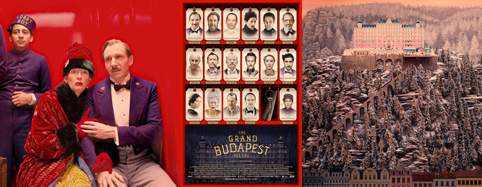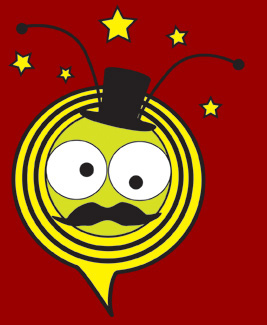
 D
D Z
Z B
BThe Grand Budapest Hotel is a delightfully intricate caper. It is a fictional tale of the glory days of service in a fictitious extravagant hotel in a fictitious Bavarian land. The tale follows a madcap adventure involving gangsters, military police, a string of international concierges, a young patissière with a birthmark of Mexico on her cheek, and a group of chanting monks all involved with the disputed ownership of a modest painting. Wes Anderson's latest storybook film contains all of his hallmark stylings: diorama-like framing, extraordinarily dry wit with flourished language, and extreme care for details in set design. But this must be his most lush and detailed perfection of his own style. The detail is so great that one can't look away. Every scene is filled with the most dazzling sets with the richest colors as if the entire film was constructed of masterful paintings.
Like the occasionally mentioned extravagant pastry in the film, the courtesan au chocolat, the film can be too rich to consume in one sitting. It creates a bit of a sensory overload. Furthermore, I find when viewing an Anderson film, no matter how much a spectacle, and no matter how charming, I feel disconnected from the story and the characters. There is little to keep me pondering or feeling any particular way when I leave it. I came, I saw, I laughed, I left.
8/10
